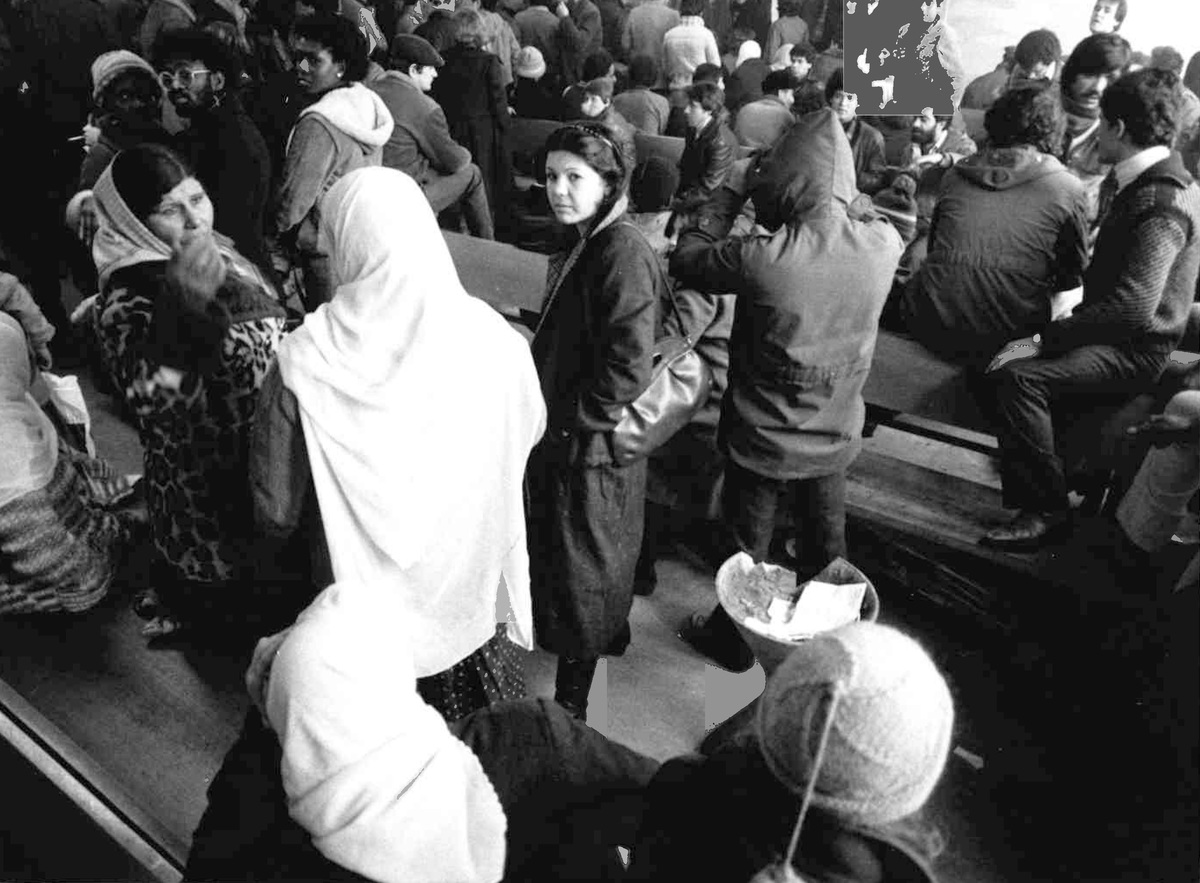Source

Source: Original title: Asylum seekers wait for their welfare payments. Berlin (West). Date: February 4, 1982. Bundesbildstelle Bonn, Image Number: 109 946. German Information Center.
The Basic Law of the Federal Republic was formulated in a way that allowed great flexibility and leeway in the granting of asylum rights to individuals who had experienced political persecution. This was done consciously and with the experience of persecution during National Socialism very much in mind. Starting in the 1970s, the number of foreign citizens requesting asylum in the Federal Republic rose dramatically. This was attributable to the arrival of large numbers of people who were seeking work and refuge. But the increase also reflected the country’s lack of an immigration law. In 1980, the number of asylum-seekers reached an all-time high of 107,818. In the political discourse of the 1980s, the subject of “asylum” was used as a polarizing force and made into an election theme. Whereas the political left, liberals, unions, and the church defended a broadly construed right to asylum and mostly opposed any sort of restriction on immigration, the political right and conservatives warned of an “abuse of asylum” and advocated restrictions on asylum rights.

Source: Original title: Asylum seekers wait for their welfare payments. Berlin (West). Date: February 4, 1982. Bundesbildstelle Bonn, Image Number: 109 946. German Information Center.
Courtesy of the German Information Center